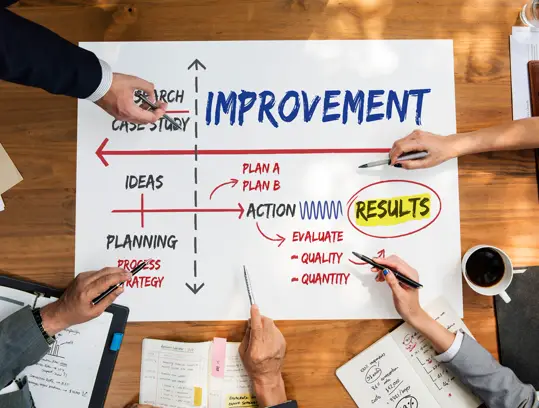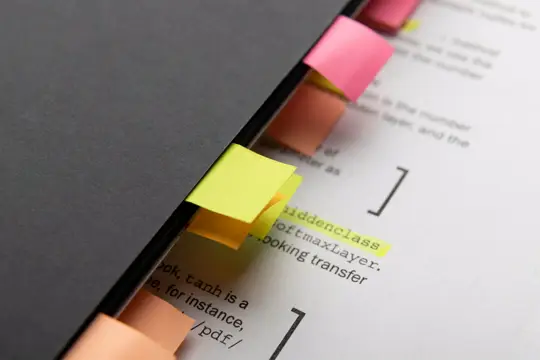Classic Interview Question about Career Plans
“What are you career plans” is a standard interview question and one that many job seekers feel they don't answer to their satisfaction. Many people find this question vague, much like a primary school essay topic such as "My Ideal." As a result, they provide answers that may come across as impractical and filled with empty words.
In this blog, we’ll break down the topic of career plans into three parts to help you understand the logic behind the interviewers' questions and how to organize your response effectively:
1. The underlying logic of career planning questions.
2. The essential information interviewers want to hear.
3. How to structure your response for a perfect answer.
1. What is this Question Really Asking?

Why is this question challenging to answer? Career planning is a broad topic, and for new professionals entering the workforce, the idea of predicting and planning their career path can seem daunting. When interviewers ask about your career plan, are they really asking for a detailed description of your grand achievements and a timeline?
Certainly not. Interviewers ask this question for two main purposes:
-
To verify your compatibility with the position.
-
To assess your potential for long-term development.
Behind the scenes, companies have a cost-related logic for their hiring decisions. No company wants to recruit employees who keep changing their minds, have unclear career goals, or are not committed to long-term growth. Employees with such profiles often face obstacles at work and are more likely to quit.
Therefore, before answering, it's crucial to ask yourself the following questions:
-
What kind of person do you want to become in the next 3-5 years? What kind of life do you want to lead?
-
In your chosen industry and role, what kind of responsibilities do you aim to have?
-
How do you plan to achieve these goals, and why do you think this company can help you get there?
2. What Interviewers Want to Hear

Career planning questions have certain criteria for success. Here are examples of incorrect answers:
-
"I hope to work hard and continually improve my abilities" (the previous candidate said the same thing).
-
"I hope to become a manager within 3 years" (what if you don't achieve it? Will it affect your stability?).
-
"I want to work for PwC" (the interviewer from a different company may be puzzled).
-
"I hope to settle down in this city, earn money, and buy a house and a car" (this doesn't seem related to the company).
How can you answer career planning questions without deviating from the topic? Your response should include elements of self-awareness, inner drive, and goal management:
Self-Awareness
-
You can create a persona for yourself, explaining why you are suitable for the job based on your strengths, personality, interests, and skills.
-
Skills and Strengths: If you possess specific skills or strengths, use this question as an opportunity to modestly highlight them (without going overboard). This can show that you have foundational skills for the job and will adapt quickly.
-
"I started managing my club’s public account in my second year in high school, honing my copywriting skills. I'm familiar with the dynamics and operating methods of new media. I hope to continue developing in the new media industry."
-
"I excel in shooting and video production, proficient in editing software such as Premiere Pro and Final Cut. I've also taken on some commercial editing projects. I aim to specialize in post-production."
Personality
Some jobs require specific personality traits. For instance, sales roles demand extroversion and strong communication skills, while creative roles in advertising require innovative thinking. Emphasize your personality strengths.
-
"I'm naturally introverted and composed, with great attention to detail. I excel in handling data and reports."
-
"I have a broad social circle and enjoy interacting with people, so I'm inclined toward business development or sales roles."
Interests and Hobbies
Express your love and enthusiasm for the job through your interests and hobbies.
- "I'm passionate about watching dramas, TV shows, and staying up-to-date with the latest trends and the subscription rules and video styles of various platforms."
Inner Drive

Companies prefer candidates with intrinsic motivation. These individuals often have a strong drive to grow and won't easily give up when facing challenges. Therefore, when discussing career planning, avoid focusing on external motivations like wanting to become a manager or doubling your income. Instead, concentrate on the internal aspects of your development and self-improvement.
For example,
-
For a UI designer:
"I aspire to have a stronger grasp of project processes from design to implementation, make breakthroughs in interaction design and creativity, and become a UI designer who truly understands user experiences."
-
For a teacher in the education and training industry:
"I hope to enhance my course design abilities, enrich the details of my teaching, discover my unique teaching style, and become a distinctive educator."
Goal Management:
After stating your goals, present feasible action steps. Typically, a 3-5 year plan is sufficient. The plan should be tailored to your industry, such as pursuing specific certifications or achieving milestones like creating a portfolio of design work.
-
"I aim to become more proficient in the end-to-end project process, from design to implementation, and make strides in interaction design and creativity. I want to be known as a UI designer who excels in user experiences.”
-
"I hope to enhance my course design capabilities, fine-tune my teaching methods, and establish my teaching style to become a unique educator."
In summary, your career planning response should include these three elements:
-
Self-awareness: Describe where you are now and why you are suitable for the job.
-
Inner drive: Explain where you want to go and how you plan to grow.
-
Goal management: Lay out your plans for achieving your objectives.
3. Organizing Your Response

Some individuals might say, "I've just graduated, and I don't have a deep understanding of these industries. I don't know what advanced skills I should aim for or how to break down my goals."
In such cases, you can consult job descriptions (JDs), especially those requiring 3-5 years or 5-10 years of experience. JDs often contain valuable information that you can adapt to your response, particularly under the "Job Requirements" section.
In Summary
Navigating the intricacies of career planning questions in interviews can be challenging, but by understanding the underlying logic and crafting a well-structured response, you can leave a lasting impression on potential employers.
Remember to showcase your self-awareness, inner drive, and goal management as you paint a vivid picture of your future aspirations and career path. Your ability to articulate your vision effectively will set you on the path to success in the competitive job market.
Aniday's HR Services
Headhunting Service
Find and recruit quality candidates in just 1 week! Supported by 40,000 experienced headhunters in IT, Finance, Marketing… capable of recruiting in any region.
Headhunting Service ➔Employer of Record (EOR) Service
On behalf of your business, we recruit employees and handle payroll without the need to establish a company in markets such as Vietnam, Singapore, Malaysia, India, Indonesia…
Employer of Record (EOR) Service ➔